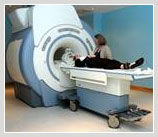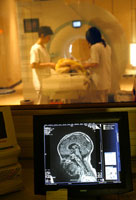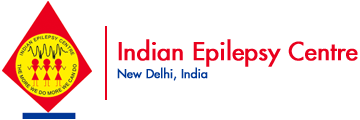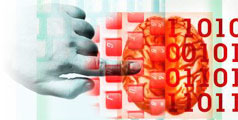Frequently Asked Questions On Epilepsy
INVESTIGATIONS:
Q: What is the role of different investigations like EEG, CT scan, and MRI scan in the diagnosis of epilepsy?
 A: The electroencephalograph (EEG) which records the electrical activity of the bairn cells has its own limitations. It is helpful, when it is clearly abnormal but 40-50% of patients with epilepsy have a normal single inter-ictal EEG. On the other hand, about 5% of non-epileptic patients may have non-specific EEG abnormalities. Despite its limitations, the EEG is a simple non-invasive and relatively inexpensive test that gives useful information if used judiciously and correlated with the clinical description of seizures. When abnormal, it is helpful in making a correct diagnosis of epilepsy and may even help in the choice of anti-epileptic drug therapy in a given case. The availability of CT scanning in larger cities of our country has been of a great help in the management of some cases of epilepsy, epecially where an underlying pathology is suspected as the cause of seizures. Magnetic resonance imaging (MRI) is now established to be a better and safer diagnostic modality than CT scanning for the detection of an epileptogenic focus or the suspected abnormality in the brain of patients with seizures. A: The electroencephalograph (EEG) which records the electrical activity of the bairn cells has its own limitations. It is helpful, when it is clearly abnormal but 40-50% of patients with epilepsy have a normal single inter-ictal EEG. On the other hand, about 5% of non-epileptic patients may have non-specific EEG abnormalities. Despite its limitations, the EEG is a simple non-invasive and relatively inexpensive test that gives useful information if used judiciously and correlated with the clinical description of seizures. When abnormal, it is helpful in making a correct diagnosis of epilepsy and may even help in the choice of anti-epileptic drug therapy in a given case. The availability of CT scanning in larger cities of our country has been of a great help in the management of some cases of epilepsy, epecially where an underlying pathology is suspected as the cause of seizures. Magnetic resonance imaging (MRI) is now established to be a better and safer diagnostic modality than CT scanning for the detection of an epileptogenic focus or the suspected abnormality in the brain of patients with seizures.
Q: Blood levels of anti-epileptic drugs are frequently prescribed by doctors. What is the role of getting blood levels done?
A: There is no role of routinely checking the blood levels of anti-epileptic drugs. However, estimation of blood levels is important to check compliance, to correlate side effects with drugs, to know the drug interactions in patients receiving more than one drugs for control of their seizures, and in certain situation where metabolism of drugs may be altered like during pregnancy, very old or very young age, and in presence of hepato-renal disease.
|
 |
 MRI Scan
MRI Scan Myths & Facts
 |





